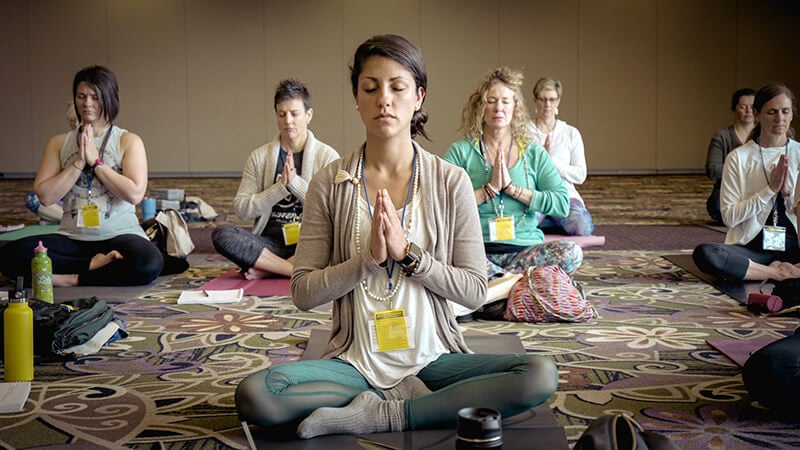If we could formulate an antidote for Match Day concerns, anxieties, malaises, etc., it would be this; and if you take nothing else from this piece, remember this:
Match is about fit, not about merit.
Unless you are matched in your top-ranked residency, this thought will cross your mind: “I wasn’t good enough to get my #1.” Don’t get me wrong—med school is competitive. You must have good grades to stand a chance of success. We got here because we are, by and large, hypercompetitive overachievers. However, it is fundamentally wrong to see Match Day as a competition.
Your whole life has been about competition, largely defined in terms of finite metrics, grades looming the largest. You’re done with “finite games.” Match is not about grades. Match is about people—about fit, not about merit. Residency is not about grades. Residency is about people—people of all kinds, but above all the people you take care of. Program Directors have said time and again that qualitative considerations (the interview; your interpersonal skills) far outweigh quantitative (test scores; GPA), in their ranking of applicants. Didn’t get into your #1? That’s because they just weren’t that into you. But the place where you did match? They are that into you. That’s where you want to be—even if you didn’t know it before Match Day.
We repeat. Match is about fit, not about merit.
So go into Match Day trusting in your application and ROL process have been built on a mutual fit between you and wherever you match. In addition to being misguided, approaching it like a competition also increases your chances of feeling embarrassed or like a failure. Picture this: leading up to Match Day, you tell everyone you meet what your #1 ranked program is. It seems like the very name will confer validation and legitimacy not only on your career, but on your personal worth. Then on Match Day, you don’t get your #1—and everyone knows you “failed” . . . because a) your actual match is projected on a 100-foot screen, and b) you told everyone beforehand where you were hoping to match. I’ve said it before: anonymity and silence regarding your ROL benefits you on Match Day. It’s far from “failure” if you don’t get your #1, but it feels more like failure if you tied your self-worth to something outside your control that doesn’t pan out . . . and if you know that 100 people in the room know that you seemingly came up short of your stated goal.
Indeed, any match at all is a success—if your ROL was done right (“It’s Not about the Spreadsheet: Rank Order Lists Done Right”), any program you ranked will be good for you. The Match favors the applicant. The Match prioritizes your desires, and the programs’ come second. You didn’t apply to places you don’t want to go (this is the most basic rule), and your ROL includes only the places you think will be a good fit. The place you match to also thinks you will be a good fit. Ergo, a match to anywhere on your ROL = success.
It’s interesting that we even have articles on managing Match Day emotions. Isn’t it supposed to be a day of celebration? Do we need counseling on how to cope with a party? But it’s the public aspect that unnerves, and empathy for (or fear that we will be one of) those who don’t match at first, and then don’t match again through SOAP . . . and find out their fate in front of all their classmates. Here it’s helpful to remember that the profession doesn’t make Match into a big public party because someone is trying to humiliate you. Rather, it’s a big public party because it really used to be a big public party. Up till around 1980, there were more PGY-1 slots than there were medical school graduates. The celebratory atmosphere, the pomp, the public-facing aspect, all were suited to a time when demographic and market realities were in greater harmony than they are today. Today, with such a large gap between the number of graduates and the number of residencies for them to fill, things are different, and for today’s graduates the party-like vestiges can seem in bad taste, or occasion for high anxiety about what others might think.
But Match Day is about you, and where you are going. It’s not about others. Don’t let jealousy derail your proper mindset, nor the desire to impress others, nor competitiveness, nor embarrassment. Be happy for everyone. Don’t judge someone who doesn’t match. Don’t judge someone who gets their first choice. Don’t fret if you get your fifth, sixth, or seventh choice—best-case scenario is that no one else knows where you ranked it, and worst-case is that people knew, but they are either your friends (in which case they aren’t judging you) or you won’t ever see them again (in which case it doesn’t matter what they think). And most of all, don’t fret if you don’t match. Everyone has a role to play, and Match Day—exciting, terrifying, despair-inducing as it may be—is just one step we all take on the way to where we need to be.



